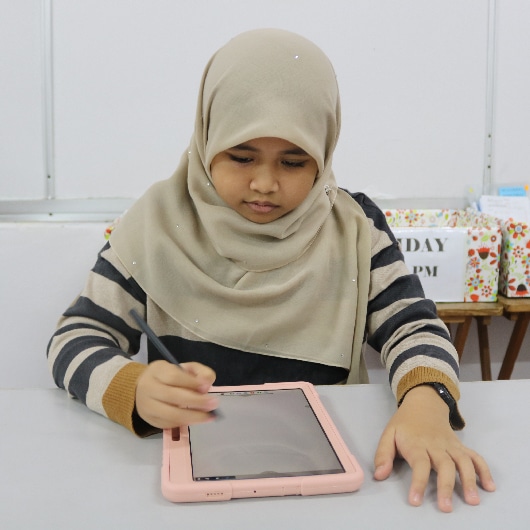What's next?
Interested?
Leave your details here.
7 Insights from Kumon Founder, Mr Toru Kumon on Early Childhood Education

1) Be a mother who always smiles
Mr Toru Kumon told all mothers that he would like them to always smile to their children. He used the expression, “be a smiling woman (mother)”, and suggested that the whole family which includes the father, should feel joyful in what their child is doing and give them deserving praises.
2) Adjust to the child’s learning rhythms
Both adults and children have high and low moments. Occasionally, these mood swings will influence the productivity of our work, by either compelling us to work more enthusiastically, or to rest on our laurels. This is especially true for young learners. As such, young learners should only be taught when they are willing to learn, rather than to rigidly follow an adult’s timetable for the sake of convenience. In other words, the appropriate time will present itself only when the child is enthusiastic to learn something of interest to them. Therefore, timing is a very important factor, so determine the right one.
3) Do not force the child to learn
Children are genuinely curious about many things. So, take full advantage of their curiosity to accelerate their learning. Curiosity is also used as a teaching method in early childhood education. It would be a huge setback for a child’s learning path if the adult ignores their curiosity, and instead, expects them to learn rigidly according to the parents’ own desires or preferences.

4) Be patient with the child
Young learners enjoy fun and repetitive activities.
5) Refrain from lending a hand too quickly
Throughout their life, a child will undergo a process of learning through trial and error. This is crucial for young learners to develop their abilities. In whatever a child does, it is crucially important for their parents to refrain from helping them too quickly, but first, to allow their child to experiment with the matter at hand independently. If parents provide assistance too soon, the child will not learn independence or self-reliance.
6) Do not be harsh when the child makes mistakes
Avoid penalising your children whenever they make mistakes. Instead, praise and commend them on their achievements. Eventually, their mistakes will be corrected through constant repetition. It is more important for a child to feel good as they are working on a task or correcting their mistakes themselves.
7) Do not worry if the child experiences difficulty in learning
Each child learns at a different pace and method. As long as adults play their part to nurture them and continue to have faith in their child, little by little, breakthrough in their learning will eventually happen.

